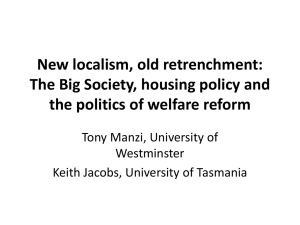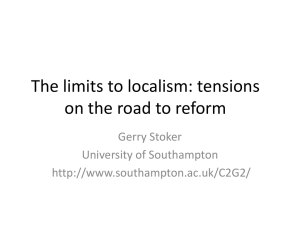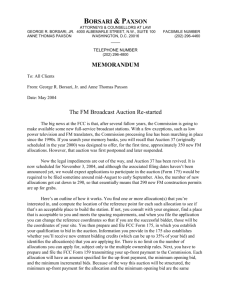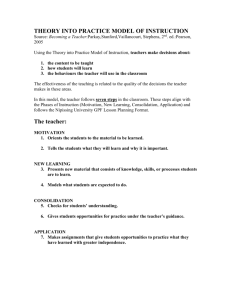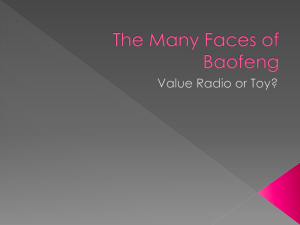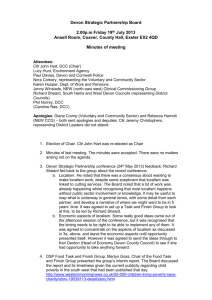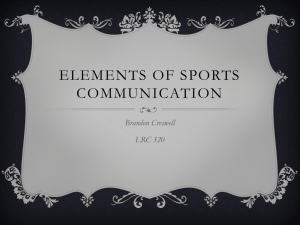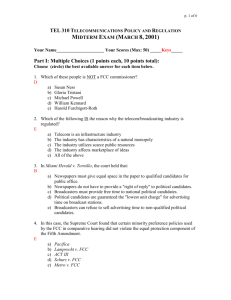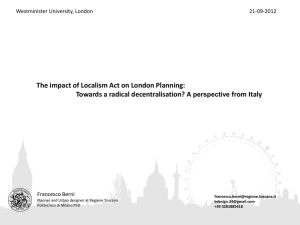Whereas:
advertisement
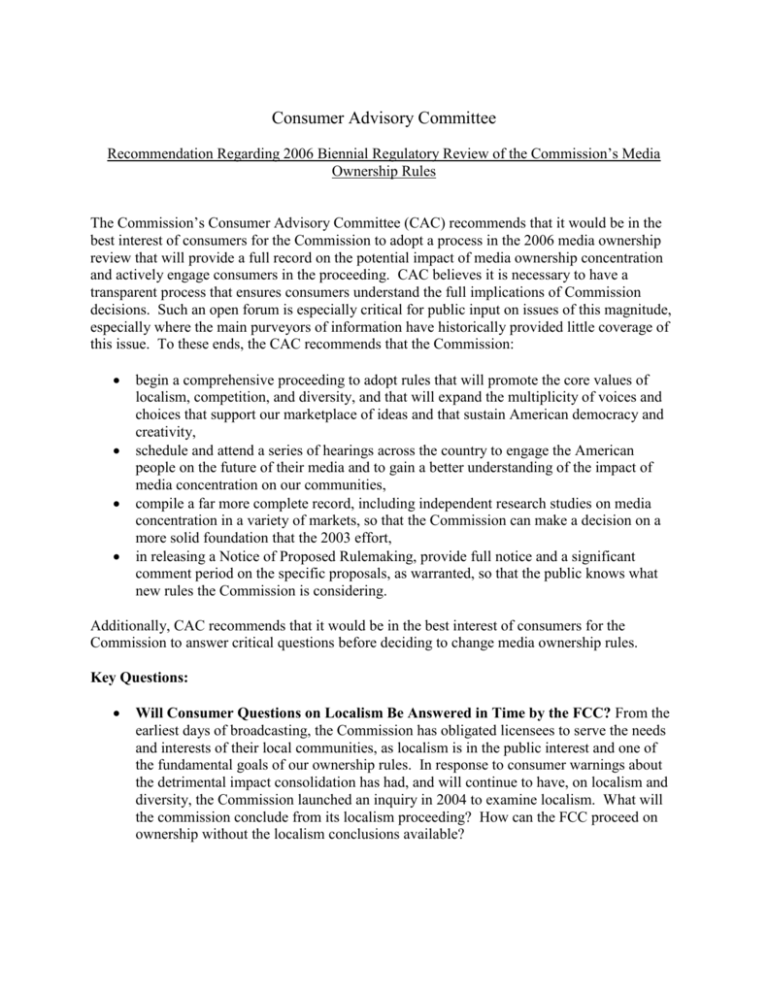
Consumer Advisory Committee Recommendation Regarding 2006 Biennial Regulatory Review of the Commission’s Media Ownership Rules The Commission’s Consumer Advisory Committee (CAC) recommends that it would be in the best interest of consumers for the Commission to adopt a process in the 2006 media ownership review that will provide a full record on the potential impact of media ownership concentration and actively engage consumers in the proceeding. CAC believes it is necessary to have a transparent process that ensures consumers understand the full implications of Commission decisions. Such an open forum is especially critical for public input on issues of this magnitude, especially where the main purveyors of information have historically provided little coverage of this issue. To these ends, the CAC recommends that the Commission: begin a comprehensive proceeding to adopt rules that will promote the core values of localism, competition, and diversity, and that will expand the multiplicity of voices and choices that support our marketplace of ideas and that sustain American democracy and creativity, schedule and attend a series of hearings across the country to engage the American people on the future of their media and to gain a better understanding of the impact of media concentration on our communities, compile a far more complete record, including independent research studies on media concentration in a variety of markets, so that the Commission can make a decision on a more solid foundation that the 2003 effort, in releasing a Notice of Proposed Rulemaking, provide full notice and a significant comment period on the specific proposals, as warranted, so that the public knows what new rules the Commission is considering. Additionally, CAC recommends that it would be in the best interest of consumers for the Commission to answer critical questions before deciding to change media ownership rules. Key Questions: Will Consumer Questions on Localism Be Answered in Time by the FCC? From the earliest days of broadcasting, the Commission has obligated licensees to serve the needs and interests of their local communities, as localism is in the public interest and one of the fundamental goals of our ownership rules. In response to consumer warnings about the detrimental impact consolidation has had, and will continue to have, on localism and diversity, the Commission launched an inquiry in 2004 to examine localism. What will the commission conclude from its localism proceeding? How can the FCC proceed on ownership without the localism conclusions available? Should Certain Consumers Count Only Half as Much? On February 19, 2004, the Commission sought comment on one part of the 2003 media ownership decision, the socalled “UHF Discount.” Under the UHF Discount policy, a UHF station is considered to reach only 50 percent of the households that a VHF station reaches, notwithstanding that the majority of consumers receive identical UHF and VHF signals over cable and satellite facilities. Is there still good reason to count a UHF station as only half a VHF station in terms of audience reach? What Are the Impacts of Ownership on Minority and Female Participation? What effect could further consolidation have on providing Hispanics, African Americans, Asian-Pacific Americans, Native Americans, women and other minority interests the opportunity to own media outlets? Moreover, what effect does media ownership have on the programs, access, viewpoint diversity, and career opportunities available for these groups as well as the disabled and low-income communities? Specifically, how might media ownership rules affect the availability of closed captioning and video description in markets of all sizes? Can Consumers Be Assured that their Community Is Being Served? The public interest would profit immeasurably with some meaningful, but user-friendly, interaction between licensees and their communities. As media conglomerates grow ever bigger and control moves further away from the local community, does it make sense to require, as a condition of renewal or new acquisition, that the owners come to a community and visit with consumers to learn about the problems, needs, and issues facing the local community? Such a suggestion would promote awareness of what members of local communities really want to see and hear in their programming. Will Ownership Concentration Increase Indecency and Impact Consumer Choice? Has consolidation led to an increase in the amount of indecent programming? When programming decisions are made on Wall Street or Madison Avenue, rather than closer to the community, do indecency and excessive violence grow more pervasive? A recent study finds that from 2000 to 2003, four of the nation's largest radio companies were responsible for 96% of FCC indecency fines, while their stations accounted for only about half of the country's listening audience. Could meaningful station ownership caps, limits on vertical integration of program ownership, and promotion of localism and diversity in our nation’s media curtail broadcast indecency by providing greater consumer choice? What Does Concentration Mean for Consumer Access to Small Local Broadcasters? What is the potential impact of loosened media ownership rules on small, local broadcasters? Media analysts predict that the only option for most local broadcasters would have been to sell their stations if the 2003 rules were implemented. Would increased consolidation risk sweeping them all away? Does Further Concentration Increase the Chances of Payola? The Commission has launched an investigation into allegations of pay-for-play that might form the basis for an enforcement action under the current rules. Does increasing media consolidation make this problem worse? Do Consumers Deserve More Independent Programming? Is there a need for independent programming requirements to ensure that consumers do not end up with national, vertically integrated conglomerates that control the distribution of channels and of program content? Network ownership of the full range of prime time programming risks constraining competition, consigning independent production to oblivion or marginal roles, and crippling the production of diverse programming. It can also cause substantial job losses, including for creative artists, technicians and many others. Should the Transition to Digital Television Effect how the Media Ownership Rules Are Formulated? The broadcasters’ primary argument for increased local consolidation is to take advantage of economies of scale derived from programming two channels. Once the transition to digital television is complete, television broadcast stations will be able to broadcast multiple program streams in the spectrum space that was previously necessary, with an analog signal, to broadcast only one program stream. With the availability of multiple program streams to each broadcaster without reducing the number of individual broadcast speakers in a local market, does it make any sense to relax any broadcast ownership rules based on economies of scale? How have technological advances and new media changed the way consumers use different media obtain information?

